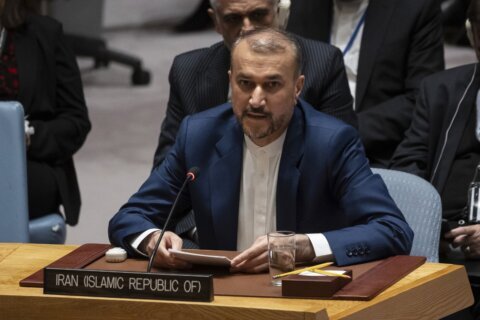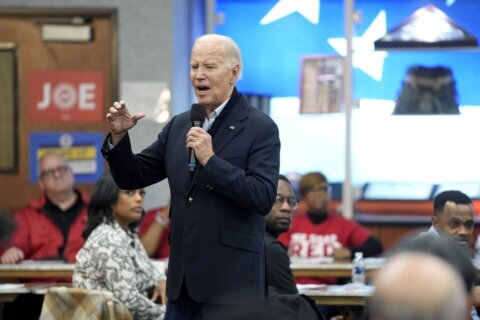A bloc of Arab parties has split ahead of Israel’s fifth elections in less than four years, a move that could dilute the minority’s political influence and aid former Prime Minister Benjamin Netanyahu’s return to power.
The Arab nationalist Balad party will run separately from the other two parties in the Joint List in the November vote. If it does not meet the minimum threshold, Balad would not enter the next parliament and its votes would essentially be wasted.
The disunity could also dampen overall turnout among Israel’s Arab minority, which accounts for 20% of the population. That would further aid Netanyahu, who aims to form a coalition that includes Jewish ultra-nationalists.
Sami Abou Shahadeh, the head of Balad, said it was the other two Arab parties, Hadash and Ta’al, who abandoned him just hours before the deadline late Thursday for submitting electoral lists. He accused the them of jettisoning his party in order to ally with a centrist bloc led by caretaker Prime Minister Yair Lapid.
“We saw them announcing the list on television without us,” he said in a Facebook video released Friday. “I think it’s clear it was a political decision.”
Ahmad Tibi, the leader of Ta’al, said they had wanted to run as a Joint List again. “It didn’t work out, and that’s a shame,” he said. “It is a big challenge for all of us, to increase the voter turnout.”
Asked whether the smaller Joint List would support Lapid as prime minister, Tibi said “the issue of recommendations is for later.”
“I’m not even sure we’ll reach that point,” he added.
Arab parties have helped block Netanyahu from returning to power in recent elections, and in 2020 a combined list of four parties had their best showing yet, winning 15 seats in the 120-member Knesset and emerging as the third largest bloc in the assembly.
Last year, the Islamist Ra’am party broke from the Joint List. It only won four seats, but went on to make history by joining the governing coalition, a first for any Arab faction. Without Ra’am, the Joint List won just six seats in last year’s election.
Israel’s Arab citizens have close familial ties to Palestinians in the occupied West Bank and Gaza, and largely identify with their cause, leading them to be viewed with suspicion by many Jewish Israelis. Arab citizens have made major gains in recent decades, in medicine and other fields, but still face widespread discrimination.
The Nov. 1 elections, like the last four, are expected to be a hard-fought race between former Prime Minister Benjamin Netanyahu, who is on trial for corruption, and a constellation of parties from across the political spectrum that believe he is unfit to rule.
Israeli elections are contests among multiple political parties, none of which has ever won an outright majority. Would-be prime ministers must assemble coalitions with at least 61 seats in the Knesset.
The fracturing of the Joint List would appear to benefit Netanyahu by diluting the influence of his most strident opponents. Netanyahu has long branded Arab leaders as a fifth column, drawing allegations of racism, though he sought Ra’am’s support after last year’s hard-fought election.
Without the hard-line Balad, the other two parties might be more open to joining a coalition led by Lapid, a center-left politician and Netanyahu’s main opponent. It’s unclear, however, whether Lapid’s potential right-wing allies would accept such an alliance.
Recent polling predicts a close-fought race between Netanyahu and Lapid, with each political camp struggling to assemble a majority. If both fail, the country would go to elections yet again.
Copyright © 2024 The Associated Press. All rights reserved. This material may not be published, broadcast, written or redistributed.







